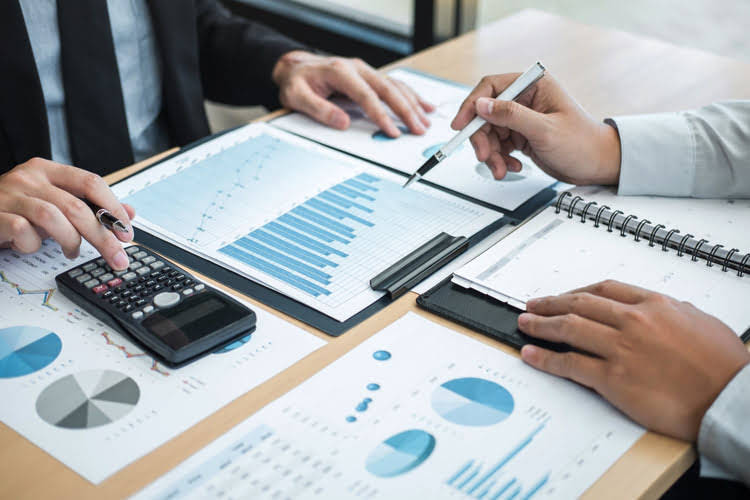
Riskis also minimized because both the supplier andthe organization can see the history of all of theirtransactions in https://igiasu.com/2022/05/13/encumbrance-accounting-definition-process-and-2/ the network, which gives them theability to identify any fraudulent activity. Blockchain technology has become a transformative force across various industries, and its application in accounting is no exception. As businesses adopt blockchain operating systems (OS), understanding their implications on financial processes is essential. Blockchain OS streamlines operations, enhances transparency, and provides real-time data access, offering significant potential for the accounting field. When implemented correctly, the blockchain provides a high degree of trust, which some accountants worry will reduce demand for traditional accounting work.
3. Evidence-Based Understanding of Blockchain’s Impact on ESG

But before these imagined futures become reality, accountants and bookkeepers should spend some time researching and learning the fundamental industry applications of blockchain. Look out for industry Bookkeeping vs. Accounting reports, webinars and talks on blockchain, and invite your peers for conversations about the technology. These include a blockchain analyser reconciler tool that can be used to reconcile, follow and match transactions. What’s more, transactions can be reviewed and verified in real-time, so there’s generally no delay between a transaction occurring and auditing it.
- The decentralization and immutability of blockchain can significantly improve the transparency and security of the audit process.
- Each transaction incurs a fee, such as the “gas fee” on platforms like Ethereum, compensating network validators.
- Blockchain records transactions instantly across all parties by providing a single, unalterable record of transactions.
- Blockchain minimizes overhead and manual transaction processing by excluding the dependency on third parties and eliminating the need to perform manual audits.
- In cross-border payments, it facilitates direct transactions between parties, cutting transaction fees and settlement times.
- Tax authorities can use smart contracts to cross-check reported income against actual transactions on the blockchain, quickly identifying discrepancies and safeguarding the tax system’s integrity.
Challenges in adopting blockchain

The future of blockchain technology in accounting is poised to bring about significant transformations, extending beyond transactional transparency. Its integration with the Internet of Things (IoT) devices holds the potential to automate real-time data collection, enhancing accuracy and minimizing manual input errors. The evolution of smart contracts will lead to the autonomous execution of complex financial agreements, reducing administrative burdens. Blockchain in accounting offers tangible benefits for business owners, revolutionizing financial operations. The blockchain in accounting technology’s transparent and immutable ledger ensures accurate and tamper-proof financial records. This enhances accountability and reduces the risk of financial discrepancies or fraudulent activities.
Author Services
Unlike a traditional ledger, blockchain isn’t owned by a single person or organisation (nor does it exist on a single computer). Instead, the ledger exists across multiple computers, and can’t be controlled by a single entity. Blockchain accounting provides full transparency – an accountant, auditor and client can access an identical ledger to verify the information on it. Disclosures should address both qualitative and quantitative aspects of blockchain transactions.
It is concerned with the transfer of ownership of assets, and maintaining a ledger of accurate financial information. The accounting profession is broadly concerned with the measurement and communication of financial information, and the analysis of said information. Much of the profession is concerned with ascertaining or measuring rights and obligations over property, or planning how to best allocate financial resources.

The intersection of blockchain and artificial intelligence (AI) heralds a new era in financial analytics. AI algorithms can process blockchain-generated data to conduct real-time risk assessments, fraud detection, and financial forecasting with unprecedented accuracy. Blockchain’s distributed nature offers a single, immutable source of financial truth, facilitating global financial consolidation and standardization. This innovation enhances data accessibility, transparency, and reliability across multinational enterprises.
- Delays in financial information can lead to missed opportunities or strategic missteps, making real-time data critical for optimizing operations and driving growth.
- Smart contracts can contribute to payroll automation by the automatic proceedings over the salaries only when the predefined conditions are met.
- The digital ledger may show that a transaction occurred between two parties, but complexities can arise.
- Despite the technological challenges blockchain presents for them, accounting firms are exploring and implementing blockchain solutions to improve their operations and services.
- To process transactions in a traditional network structure also requires technical skills.
Auditors are now expected to have a solid understanding of basic auditing knowledge and master computer skills, possess in-depth blockchain knowledge, and demonstrate strong analysis and decision-making capabilities. However, as of now, most auditors lack exposure to blockchain-related content (Low et al., 2020). This effectively means that Person A has a copy of all of their information as does Person B, and as does the next person. In a decentralized environment, all participants have access to the same information and users can then choose to share it or not. Information will no longer need to be aggregated and stored in central databases as it will be stored everywhere at once and, if desired, under direct user control rather than the company offering the service.
